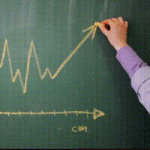The Culture Perception Gaps
Are you aware that there’s also a Culture Perception Gap?
I’ve written and spoken many times about the CX Perception Gap (aka Bain’s Delivery Gap), but there’s not much said about the Culture Gap. Until now.
Five Principles Of Advanced SEO
This post does not pick on Google. It picks on us. We’re passive. Lazy. Dependent on Google to give us SEO advice. We jump on bandwagons and apply hacky fixes. Then we say we’re practicing “advanced SEO” because we know how to use noopener.
Advanced SEO isn’t about scouring webmaster hangouts, applying the latest Google patches, and then calling it a day. You want to be “advanced”? Understand five principles:
1: Google Recommendations Are Not SEO Recommendations
Rule number one trumps all other rules.
Apply Google’s recommendations, and a website is visible. Our job isn’t to make sure a site is visible. Any competent developer can do that.
An SEO’s job is to ensure a website can sustainably compete for organic rankings and conversion-generating traffic.
An advanced SEO is always aware that Google is not making SEO recommendations.
2: Always Read The Fine Print
Everyone talks about javascript and its impact on SEO. Search engines tell us “We can render javascript.”
They can! But javascript is risky. Rendered does not equal ranked.
That’s one example. There are plenty more. Here’s Google talking about 301s and links. I added the highlighting:


Read all of Google’s guidance with skepticism and rule #1 in mind. Watch for “could” and “might” versus “do” and “does.”
Read the fine print.
3: Remove Problems. Don’t Hide Them.
Now and then, the search engines give us Remedies: Stuff like rel=canonical. Search engine support for remedies comes and goes.
Google said nofollow would work for link sculpting. Then they said otherwise, sparking the worst nerd riot in history. Folks pelted the stage at SMX Advanced with branded stress balls and iPhone cases. Horrifying.
Google supported rel=next/prev. Until they didn’t.
Remedies change. Shit that just works, though? That’s forever. Don’t mitigate. Fix.
4: Reduce Abstraction
Don’t put more stuff between your content and browsers/bots.
Prerendering and hybrid solutions create additional layers. Redirects create extra hops. Avoid them whenever possible.
Reduce abstraction. Give Google a direct path to your content.
5: Learn The Tools
You can be “advanced” if you don’t know how to analyze a log file, or do fancy natural language processing (I can’t). But you need to be prepared to learn.
That sounds trite. But “learning” doesn’t mean reading the latest blog posts. It means digging into the command line, hacking around with some code, and learning how search engines work.
Read someone’s great GREP tutorial(cough cough).
Learn on-page SEO and natural language processing. Understand how to measure shingling (and what it is, too).
I can’t list everything because I’m still figuring it out myself.
Corollary: Advanced SEO Doesn’t Replace The Basics
By the way: Advanced isn’t a replacement. It’s an amplifier. It makes the basic, nuts-and-bolts SEO tactics more effective.
So spend all the time you want geeking out about natural language processing and isomorphic javascript (I do).
But you’d better spend even more time on title tags, internal linking, and the words you use on a page.
If you skip the basics, all the fancy-schmancy advanced tactics in the world are worth exactly nothing. You’re giving Google a chocolate chip cookie without chocolate chips. That’s bound to piss anyone off.
Advanced SEO means giving me my chocolate chip cookie.
End of rant.
The post Five Principles Of Advanced SEO appeared first on Portent.
How Does Eazl's Business, Finance, and Economics (BFE) Program Work?
Visit http://apply.eazl.co to learn more about Eazl’s Business Finance, and Economics (BFE) Program. The Program features: • Tuition-free access to all BFE …
Read More →Facebook Advertising 101: The Basics of Facebook Ads
Learn the Building Blocks of Using Facebook’s Ad System Everything in Facebook’s ad ecosystem is about what you want people to do when they see your …
Read More →Three Blockchain Companies Creating the Future of Business
Smart Contracts and « decentralized organizations » (often called « DAOs » are going to totally disrupt the way digital businesses are launched and managed in the …
Read More →Digital Marketing News: Online Ad Spend’s Speedy Growth, Google’s Podcast Transcriptions, & Adobe’s LinkedIn Push
The post Digital Marketing News: Online Ad Spend’s Speedy Growth, Google’s Podcast Transcriptions, & Adobe’s LinkedIn Push appeared first on Online Marketing Blog – TopRank®.
Not Using Facebook Offline Events? You’re Missing Out
Facebook Offline Events does something few platforms can: tie online advertising to offline conversions. It is not a new feature in Facebook Ads manager, but few marketers make it a priority in their social media strategy.
Offline event tracking demands significant time and effort to gather customer data, import it into Facebook, and make sure it is consistent. In addition, API integration may demand scarce development resources.
However, businesses with brick-and-mortar presence can reap major benefits. Advertisers can unearth an added layer of conversion metrics driven by their campaign efforts.
If you’re not familiar with Facebook Offline Events, keep reading. If you’re already convinced and want to learn more, read our real-world example, below.
What are Facebook Offline Events?
Facebook Offline Events give advertisers the ability to upload customer data and track which offline events in the customer journey were influenced by their ad campaigns. A custom value can be assigned to each designated event, allowing advertisers to measure their Return on Ad Spend (ROAS) directly within the platform.
Tying your offline conversion events (and conversion values) back into the Facebook ad platform provides advertisers with a level of tracking not otherwise available through the platform. This tracking is the best way for advertisers to track online-to-offline performance for their ad campaigns.
While you may immediately think these offline events only apply to in-store purchases, it also allows advertisers to track phone calls, coupon redemptions, and appointments booked among other offline conversion points. Any action that is not recorded online and may contribute to an eventual conversion is trackable.
Below are a handful of examples where offline event tracking is useful:
- A customer redeems a coupon for a free service
- A customer places an order over the phone
- A customer books an appointment in-person
How Do I Upload a Data Set For Facebook Offline Events?
Getting started with Offline Events on the platform is all about the data set you upload.
When putting together your data set, advertisers must upload the following:
- Customer details (name, email, and/or phone number)
- Event details (if it was a lead, registration, purchase, etc.)
- Event value (the dollar value of the event detail that occurred)
- An accurate timestamp of the conversion event
Ideally, upload your data to the platform daily. The more often your data set is uploaded, the more reliable your data insights will be. Find full details on how to upload a data set to the platform here.
Facebook uses the customer data included in the data set to determine which users converted offline after engaging with your Facebook campaign. The proper attribution model makes tracking more accurate.
What are the Benefits of Using Facebook Offline Events?
Properly using Facebook Offline Events adds a much-needed data layer to any advertiser optimizing their ad campaigns around conversion points that happen offline. We’ve seen advertisers in a wide variety of verticals benefit. Some fit the typical offline conversion model. Others do not.
Harvard Business Review analyzed the value of a like and determined that although engagement on social media does not translate directly to sales, advertising does.
Upwards of 80% of the marketers surveyed couldn’t quantify their social media efforts at that time. Two years later, the issue still exists.
Combine that with the fact that 90% of retail sales still occur offline, and it is likely that your Facebook campaigns are contributing significantly more to the customer journey than you know.
To ensure that your Facebook advertising strategy is getting the proper credit it deserves, companies who operate offline in even the smallest capacity should take advantage of the ability to match offline conversions to their Facebook campaigns.
If your business or customers interact with your brand offline in any way and you’re not tracking offline events, you’re missing value in the tracking of your marketing efforts.
For businesses where conversion points only occur in a physical store, it’s nearly impossible to determine the impact of your digital marketing efforts without some kind of offline conversion tracking. Businesses built purely with physical locations typically have minimal conversion events on their site, making it even harder to determine campaign effectiveness.
For many of these advertisers, the majority of their Facebook campaigns are optimized to build Reach or Brand Awareness. As an advertiser, it can be difficult to wade through the vagueness of the Brand awareness algorithm, especially since the main KPI attached to the objective is estimated and in development.
With offline event data, advertisers can finally put together a closer-to-complete picture showing the direct conversion impact of a social media campaign.
A Real-World Example
We have a client whose only financially-tied conversion points come offline. They have top-of-the-funnel conversions on their site, but those pale in comparison to the importance of their offline conversion points.
Historically, they have used Reach and Brand Awareness metrics as key performance indicators of their Facebook ad efforts.
After putting together a detailed data set, our client uploaded roughly 400,000 purchase events from the last three months to the Facebook platform.
Using their selected attribution window of 7-day click (users who purchased in 7 days after clicking an ad), we were able to directly attribute over 1,000 of those purchases during February.
The ability to upload and track the offline data allowed us to show a ROAS just a touch over 400%.
Without the ability to upload this information and track it using Facebook’s Offline Events, we wouldn’t be able to track the effectiveness of the campaign to the level of granularity we did – taking significant measurement and credit away from the effectiveness of the campaign.
Regardless of the amount of revenue generated offline, any advertiser with an offline touch point can benefit from understanding exactly what events are driven by their Facebook campaigns.
If you are not utilizing offline events through Facebook’s ad platform, you are missing out on a piece of your paid social ROAS.
And for some advertisers, that may be a large piece. For others, it may be just a small sliver, but why leave a stone unturned when tracking the effectiveness of your paid social efforts on Facebook?
The post Not Using Facebook Offline Events? You’re Missing Out appeared first on Portent.
The Google Analytics Cheat Sheet
Updated: March 2019
We published the original Google Analytics Cheat Sheet back in 2010. Here it is, updated for 2019, still free, still no registration required. Take a look:
The post The Google Analytics Cheat Sheet appeared first on Portent.
Do You Believe in Your Company's Core Values?
Do employees believe in the core values? Do they even know their company’s core values?
Core values are the fundamental beliefs of an organization; they guide executives and employees in identifying which behaviors and actions are right and which are wrong.
Everything you do must be aligned with your core values, and core values should be integrated into everything you do. When in doubt, ask: « Is this the right thing to do? Does it fit with our core values? »








